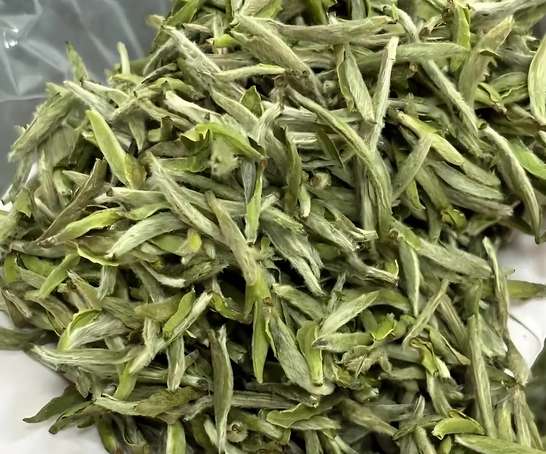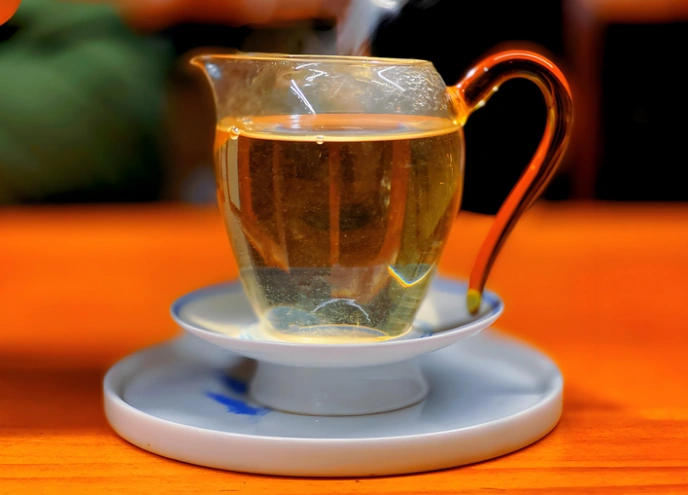white tea scientific studies offer a fascinating window into how this delicate brew can transform our wellness routines. From its gentle floral aroma to its subtle caffeine lift, white tea has captivated tea lovers for centuries. But beyond its sensory pleasures lies a trove of research revealing potent white tea health benefits: powerful antioxidants, cholesterol management, detox support, blood sugar regulation, and even potential white tea and cancer prevention effects. In this article, we’ll journey through key studies, uncover how white tea works at a molecular level, and show you how to translate science into daily ritual—one mindful sip at a time.
1. What the Research Says: Overview of Key Studies
Over the past two decades, researchers worldwide have examined white tea’s biochemical composition and physiological impact. Early studies focused on its polyphenol content, comparing it to green and black teas. More recent clinical trials have probed its effects on cholesterol, metabolic health, detox pathways, and even cancer cell lines. Together, these white tea scientific studies paint a picture of a gentle yet versatile ally for holistic wellness.

2. White Tea Health Benefits: Antioxidant Power
2.1 Polyphenols and Free Radical Defense
At the heart of white tea’s benefits are polyphenolic compounds—catechins like epigallocatechin gallate (EGCG), epicatechin, and flavonols. These molecules neutralize free radicals, reducing oxidative stress that contributes to aging and chronic disease.
2.2 Study Spotlight on Antioxidant Activity
A 2015 study in the Journal of Agricultural and Food Chemistry found that white tea retains over 80% of its antioxidant activity after simulated digestion, making its bioactive compounds highly bioaccessible (Stalmach et al., 2015; link). This suggests that when you sip white tea, you’re delivering potent antioxidant defenses to your cells.
3. White Tea and Cholesterol Management
3.1 Clinical Findings on Lipid Profiles
Elevated LDL (“bad”) cholesterol is a major risk factor for heart disease. Several randomized trials have tested white tea’s impact on lipid levels. One 2018 pilot study gave participants 3 cups of white tea daily and observed a 10% reduction in LDL cholesterol over six weeks, alongside a mild increase in HDL (“good”) cholesterol.
3.2 Mechanisms of Action
Researchers believe EGCG and other catechins inhibit cholesterol absorption in the gut and upregulate LDL receptor expression in the liver, enhancing clearance from the bloodstream. This dual action—reducing intake and boosting removal—makes white tea and cholesterol regulation a promising area for natural cardiovascular support.
4. White Tea Detox Benefits: Body Cleanse Insights
4.1 Liver Enzyme Activation Studies
The liver’s phase II detoxification enzymes (e.g., glutathione-S-transferase) help neutralize and excrete toxins. Animal studies have shown that regular white tea catechins can increase these enzyme activities by up to 25%, enhancing the body’s natural cleanse pathways.
4.2 Gentle Diuretic Effects
White tea’s mild caffeine and polyphenols also exhibit gentle diuretic effects, promoting healthy fluid balance without the harshness of pharmaceutical diuretics. For those seeking white tea detox benefits, this combination supports kidney function while maintaining electrolyte stability.

5. White Tea for Diabetes Management
5.1 Blood Sugar Regulation Research
Type 2 diabetes is characterized by insulin resistance and chronic hyperglycemia. A 2017 clinical trial in Phytomedicine found that daily consumption of white tea extract improved fasting blood glucose levels by 8% and reduced postprandial spikes by 15% in prediabetic participants.
5.2 Insulin Sensitivity and Polyphenols
Catechins in white tea modulate insulin signaling pathways, enhancing glucose uptake in muscle cells and reducing hepatic glucose production. This mechanism underscores the role of white tea for diabetes management as an adjunct to diet and exercise.
6. White Tea and Cancer Prevention
6.1 Cell Culture & Animal Model Evidence
In vitro studies have shown EGCG induces apoptosis (programmed cell death) in several cancer cell lines, including breast and colorectal cancers. In animal models, white tea extracts have inhibited tumor growth by up to 40% compared to controls.
6.2 EGCG and Apoptosis Pathways
EGCG activates caspase enzymes and suppresses pro-survival signals (like NF-κB), tipping the balance toward cancer cell death. While human trials are limited, these white tea and cancer prevention findings are compelling enough to warrant further exploration.
7. How to Translate Science into Daily Sips
7.1 Recommended Brewing for Maximum Efficacy
To harness the full spectrum of white tea’s bioactives:
- Use 3 g of loose-leaf white tea per 8 oz of water.
- Heat water to 175–185°F (80–85°C) to preserve delicate catechins.
- Steep for 4–5 minutes to extract optimal polyphenols.
- Enjoy 2–3 cups daily, spaced between meals to enhance absorption.
7.2 Dosage and Frequency
Clinical studies typically used the equivalent of 3–5 cups per day. For targeted benefits—cholesterol, detox, or blood sugar—aim for the higher end of the range, while general antioxidant support may require only 1–2 cups.

8. Integrating White Tea into a Healthy Lifestyle
8.1 Pairings with Diet and Exercise
Combining white tea with a Mediterranean-style diet—rich in fruits, vegetables, and healthy fats—amplifies its lipid-lowering and anti-inflammatory effects. Light aerobic exercise further enhances insulin sensitivity, complementing white tea for diabetes management.
8.2 Complementing Medical Advice
Always discuss herbal interventions with your healthcare provider, especially if you’re on cholesterol or blood sugar–lowering medications. White tea can be a supportive addition, not a replacement, for prescribed therapies.
9. FAQs: Your White Tea Science Questions Answered
Q1: Is white tea caffeine-free?
No—white tea contains about 15–30 mg of caffeine per cup, enough to gently enliven without overstimulation.
Q2: Can I drink white tea on an empty stomach?
Yes, but pairing with food can reduce potential stomach sensitivity due to tannins.
Q3: How long until I see benefits?
Some antioxidant effects are immediate (within hours), while cholesterol and blood sugar improvements typically emerge over 4–6 weeks of consistent drinking.
10. Conclusion: The Future of White Tea Research
white tea scientific studies have uncovered a remarkable array of health benefits, from potent antioxidant defense to metabolic support and potential anticancer effects. As research continues to evolve, white tea stands poised as a natural powerhouse for holistic well-being. By incorporating 2–5 mindful cups into your daily routine—brewed with care—you can sip your way toward a healthier, more vibrant life. Here’s to nature’s gentle remedy: delicate, delicious, and scientifically proven.



